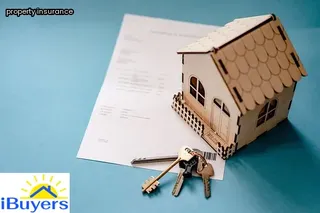When submitting a fire insurance claim, it is possible to be denied by the insurance provider.
Common reasons for this denial can include not having enough coverage, the cause of the fire being excluded from coverage, filing after the expiration date of your policy, not fulfilling all obligations outlined in your policy such as providing required proof or information, and providing false or inaccurate statements on your application.
Additionally, if you do not file a timely claim or provide proper documentation proving that you sustained losses due to fire damage, then it could result in a denied claim.
It is important to understand what is covered under your policy and that all requirements are fulfilled when filing a fire insurance claim so that the claim is processed properly and quickly.

When it comes to fire insurance claims, misrepresentation of facts can be a major issue that leads to claim denials. It's important to understand what constitutes as misrepresentation and how it can affect your claim.
Misrepresentation occurs when someone intentionally gives false or incorrect information on an application, policy, or statement of loss in order to obtain coverage. If the insurer finds out about this misstatement during the investigation process, it could result in a denial of the claim.
It's also possible for an insurer to deny a claim if they believe you have intentionally withheld information from them or provided incomplete information regarding your loss. In either case, the insurer may attempt to recover any benefits paid out due to misrepresentation.
To avoid these issues with your claim, make sure you are honest and accurate when providing all requested information so that you don't face unnecessary delays or denials of your fire insurance claim.
When making a claim for fire insurance, there are a few common reasons why it may be denied. One of the main causes of denial is an incorrect filing - if any paperwork is incomplete or inaccurate, then the claim will not be accepted.
Another reason could be that the policyholder did not follow all necessary guidelines - for example, by failing to report the incident to their insurer in time or leaving out key details during their initial claim. A third potential cause of rejection is that the damages caused by the fire are not covered under the policyholder’s specific plan.
Additionally, any attempts to defraud an insurance company or make a fraudulent claim can result in denial as well. It is important to thoroughly review your policy before submitting a fire insurance claim, as certain exclusions may prevent you from being successful in your attempt at compensation.

When it comes to filing a fire insurance claim, it is important to be aware of potential reasons for denials and take steps to avoid them. It is possible to increase the chances of having a claim accepted by understanding the details of your policy, gathering all relevant evidence, verifying items on the inventory list, ensuring accurate documentation and providing any additional information requested by the insurer.
Filing claims without proper preparation can lead to delays in coverage or outright denial. Understanding what types of damages are typically covered by fire insurance policies and researching typical exclusions can also help you ensure your claim is not denied.
Finally, having an advocate who understands the insurance process and can represent your interests can make sure that all the necessary paperwork is filed promptly and accurately. Taking these steps before submitting a claim can help protect you from devastating financial losses due to denied fire insurance claims.
Insurance companies investigate fire claims carefully to determine the validity of a claim. They may send an investigator to the scene of the fire to take pictures, talk with witnesses, or review building blueprints and codes.
Companies also examine records of past payments and losses for any relevant information. The insurance company may request documents from policyholders such as bills, receipts, repair contracts, or photos that can be used to prove damage and/or loss.
In addition, they will often use computerized databases to compare information on fire claims with other similar claims filed in the past. Insurance agents may also contact local law enforcement agencies if they suspect arson or other criminal activity was involved in the fire.
All of these activities are part of a thorough investigation into any fire insurance claim that is submitted by a policyholder.

When filing a fire insurance claim, collecting evidence is an important step. Depending on the circumstances of the fire, you may need to provide proof that the event was an accident or demonstrate that the damages were caused by a fire.
Evidence can include photographs of the damage before and after, police reports or fire department records, witness statements, and documents outlining safety precautions taken prior to the incident. Additionally, it may be necessary to provide receipts for items damaged in the fire as well as written estimates from contractors for repairs.
Finally, if a third party was responsible for causing the fire, you may need to prove negligence with relevant documents and records. Collecting this evidence can be time-consuming but it is essential for a successful claim.
When a fire insurance claim is denied, one of the possible causes could be that unpermitted electrical work has been done on the property. This type of work can have a significant impact on the validity of an insurance claim and should not be taken lightly.
Homeowners should ensure that all electrical work is done following local building codes and regulations, with any required permits obtained in advance. If a homeowner chooses to employ an unlicensed contractor or take on electrical repairs without obtaining the necessary permits, they may risk invalidating their fire insurance policy and having their claim denied by their insurer.
Even if it is later discovered that the unpermitted electrical work did not cause the fire, insurers have the right to deny claims made from properties where unauthorized alterations have been made and may refuse to cover repairs related to those changes. Therefore, homeowners should always take care when making renovations or repairs as it could significantly affect their ability to receive compensation for damages caused by a fire.

When filing a fire insurance claim, it is important to consider the possibility of your claim being denied. Natural weathering, prior damage, and maintenance issues are some common reasons why claims are denied.
Natural weathering can cause deterioration over time and weaken the structure of a building or property. Prior damage may be an issue if the insurer is able to prove that the damaged item was not in proper working order before the fire occurred.
Additionally, if there are signs of inadequate maintenance or repairs that could have prevented the fire from occurring in the first place, this could also lead to denial of a claim. These types of issues often require additional investigation by both parties involved to determine whether or not they played a role in the incident.
When it comes to filing a fire insurance claim, taking preventative measures beforehand can help you avoid a denied claim. It is important to understand the coverage that your policy provides and read through the fine print.
In addition, it may be beneficial to take pictures of your property before and after the incident in order to provide evidence of the damages incurred. Doing this can help support your claim as needed.
Keeping an inventory list of items lost in the fire is also essential for verifying losses with the insurance company. Furthermore, having receipts and other documentation of your possessions can be useful when submitting a claim.
Finally, understanding all applicable deductibles and payment options available could potentially save you from additional costs that may be charged by the insurance company.

When it comes to filing a fire insurance claim, it is important to understand what can cause your claim to be denied. One of the primary reasons a fire insurance claim may be denied is that the policyholder has missed one or more premiums.
Missing even one premium payment can result in the policy being cancelled and any claims made thereafter will not be valid. Additionally, if the policyholder does not pay their premium in full at renewal time, their coverage may be reduced or excluded from certain perils such as fire.
It is therefore critical for policyholders to stay up-to-date on their payments, as this will ensure that they are fully covered in the event of a fire loss. Furthermore, some insurers may require a certain amount of time between when a premium payment is missed and when a claim can be filed, so it is important for policyholders to know these conditions before submitting their claim.
Insurance companies can deny a fire claim for a variety of reasons. It is important to understand why your claim was denied in order to identify any possible gaps in coverage or errors made when filing the initial claim.
Common reasons that insurance may deny a fire claim include failure to pay premiums, inadequate documentation, insufficient evidence of covered damages, and fraudulent activities. When an insurance company denies a fire claim, policyholders should investigate their coverage and review the denial letter carefully for further explanation as to why the claim was declined.
It is also important to contact the insurer directly if there are any questions or disagreements about the coverage or the denial. Understanding why your fire insurance claim was denied can help ensure that you are adequately covered in the event of another incident and that you receive fair compensation in case of future claims.

One of the most frequent reasons for a fire insurance claim to be rejected is when policyholders fail to provide sufficient proof that damage was caused by the fire. It is important to remember that insurance companies will look very closely at all available evidence before they make a decision on a claim.
Without adequate proof, it's possible that the claim may be denied. When submitting a claim, policyholders should include documentation such as photographs, repair bills, and/or estimates of damage that can demonstrate the incident occurred and prove the cause of the fire.
This evidence will help an insurer make an accurate decision regarding the claim and can make it easier to avoid being denied coverage.
When it comes to fire insurance claims, it can be a difficult process trying to understand why your claim was denied. In order to know what steps to take, it is important to investigate which insurance companies are most likely to deny claims.
Analysis of data from the National Association of Insurance Commissioners (NAIC) reveals that State Farm and Allstate deny the highest percentage of fire insurance claims in comparison with other major carriers. At State Farm, 25% of all fire insurance claims were denied in 2017, followed closely by Allstate at 24%.
Other insurers such as Farmers Insurance and USAA had lower percentages of denial, ranging from 7% to 17%. It is important for policyholders to understand the reasons for their claim’s denial before initiating an appeal or taking legal action.
Knowing which insurer denies the most claims can help policyholders anticipate potential challenges when filing a claim.
When your fire insurance claim is denied, it can be a difficult and confusing situation. However, if you understand the process and take the right steps to maximize your claim amount, you will be in a better position to get the most out of your fire insurance claim.
Understanding the coverage provided by your policy and knowing what documentation is needed to file a successful claim is essential. Additionally, having an understanding of common reasons why claims are denied can help you strategize how to best appeal or negotiate an increased settlement amount.
It’s also important to keep track of all communications with your insurer, as well as any costs related to the fire damage that may not have been covered by your policy. Lastly, researching other local providers who offer similar policies may be beneficial when negotiating with your current insurer for more favorable terms or coverage.
With these tips and strategies in mind, you should be able to get the most out of your fire insurance claim if it is denied.